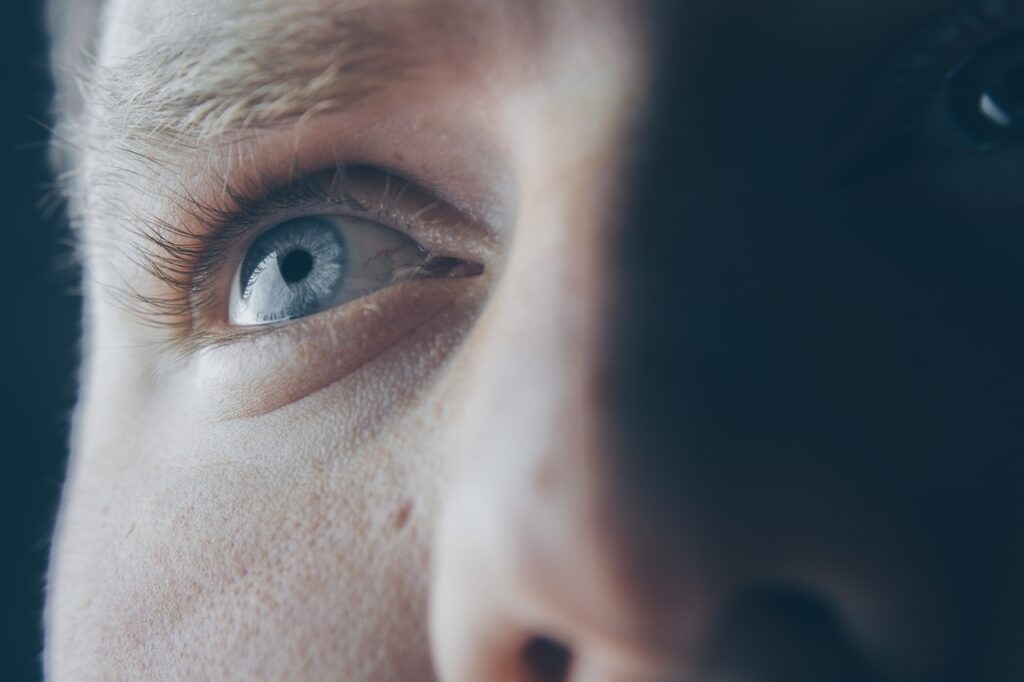When people don’t have an issue with their eyesight, they often pass on regular checkups with an optometrist or ophthalmologist. However, your eyes are a complex system that helps take in the world around you; 80 per cent of what we perceive comes from our sense of sight. Eye examinations are not just for vision, and good vision does not equal perfect eye health.
Besides eye health issues like glaucoma or cataracts, your optometrist can tell if you are at risk for high blood pressure, diabetes, or liver disease, among many other things. Routine eye checks can also monitor for early detection of eye diseases, some of which are best to be detected at an earlier stage for prevention of irreversible vision loss. So don’t brush off yearly checkup reminders from your optometrist’s office, and in between those appointments, here are a few tips you can use to maintain your eye health.
Screen time
Between computers, tablets, smartphones, and TVs, the average American spends about 7 hours looking at a screen every day. This can cause eye fatigue, dryness and irritation, and a loss for focus flexibility (the ability to adjust your eyes at all distances quickly). It can also cause nearsightedness in children and retinal damage from the blue light.
The simple answer would be to just stop looking at a screen all day. However, our phones are tethered to our hand, and our jobs/school might require it. And sometimes, the only way you can get anything done is to keep your children occupied with a show.
Edmond-based optometrist Joann Thomas Cherian recommends 2 hours maximum screen time per day for children. For the adults who simply can’t avoid frequent screen time, “Constantly looking at a screen causes a lot of eye fatigue, double vision, and headaches, so I recommend the 20-20-20 rule,” she said.
The concept is simple: every 20 minutes of screen time, look at something approximately 20 feet away for 20 seconds. Concentrating on something else at a distance allows the eye muscles to relax.
Digital eye strain, while it might not damage eyesight permanently, causes extremely uncomfortable symptoms. There are a few other easy ways to prevent it:
- Adjust the lighting so the screen isn’t brighter than the surrounding light. Increase the contrast on the screen to reduce eye strain.
- Keep the screen about an arm’s length away from your eyes and angle the screen so you are looking slightly downward. Position the screen so there’s no glare, which further irritates the eyes; consider using a matte screen filter.
- Use blue light filters so your eyes won’t feel as tired at the end of the day.
- We tend to blink less while staring at a screen, so keep artificial tears at your desk to relieve dryness. Humidifiers also help keep eyes lubricated.
- Keep screens clean: fingerprints and debris can strain your eyes even more.
We put great emphasis on taking care of the rest of our body, and our eyes are something we can’t afford to neglect. Here are a few other ways to keep your eyes healthy:
Eat a balanced diet: Eating leafy greens and foods rich in vitamins A, C, D, and E, as well as zinc and omega-3 can keep your eyes healthy long term and slow age-related vision problems.
Stay hydrated: When your eyes are dry, tears can’t play their part in protecting against infections.
Protect your eyes from UV rays: Prolonged exposure to the sun increases risk of macular degeneration and cataracts. Just as you protect your skin from ultraviolet rays, protect your eyes with a pair of quality UV-protective sunglasses. Although it’s not a substitute for sunglasses, some contacts provide UV protection as an extra layer of protection.
Helen Jacob | Contributing Writer










